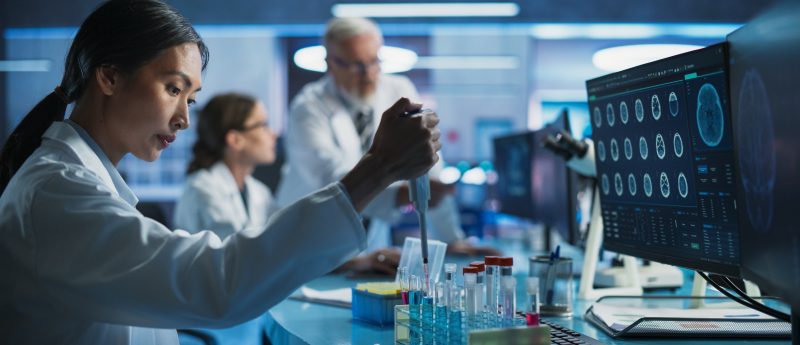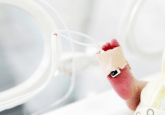New biosensor to aid safe heart surgery

A group of researchers have reported a novel biosensor designed to help doctors reduce brain damage during heart surgery.
Scientists at Johns Hopkins University (MD, USA), including expert cardiologists and engineers, have developed a fingernail-sized biosensor to detect brain injury that occurs during heart surgery.
Investigator Howard Katz from the Department of Materials Science and Engineering at Johns Hopkins University, explained the principal behind the technology, “Ideally, the testing would happen while the surgery is going on, by placing just a drop of the patient’s blood on the sensor, which could activate a sound, light or numeric display if the protein is present.”
The team developed the biosensor, built on an organic thin-film transistor design, to detect glial fibrillary acidic protein (GFAP), a biomarker of brain injuries. GFAP is detected by a layer of antibodies on the sensing area, which is a small square measuring approximately 9 mm. The device proved extremely sensitive, as explained by Katz, “It recognized GFAP even when there were many other protein molecules nearby. As far as we’ve been able to determine, this is the most sensitive protein detector based on organic thin-film transistors.”
According to the press release, a study has found that 40% of young patients who undergo heart surgery develop brain abnormalities, often caused by strokes. Therefore, as explained by Allen Everett, a Children’s Center pediatric cardiologist from Johns Hopkins University, the device could lead to a reduction in brain abnormalities, “If we can be alerted when the injury is occurring, then we should be able to develop better therapies. We could improve our control of blood pressure or redesign our cardiopulmonary bypass machines. We could learn how to optimize cooling and rewarming procedures and have a benchmark for developing and testing new protective medications.”
Source: Biosensor could help detect brain injuries during heart surgery.





